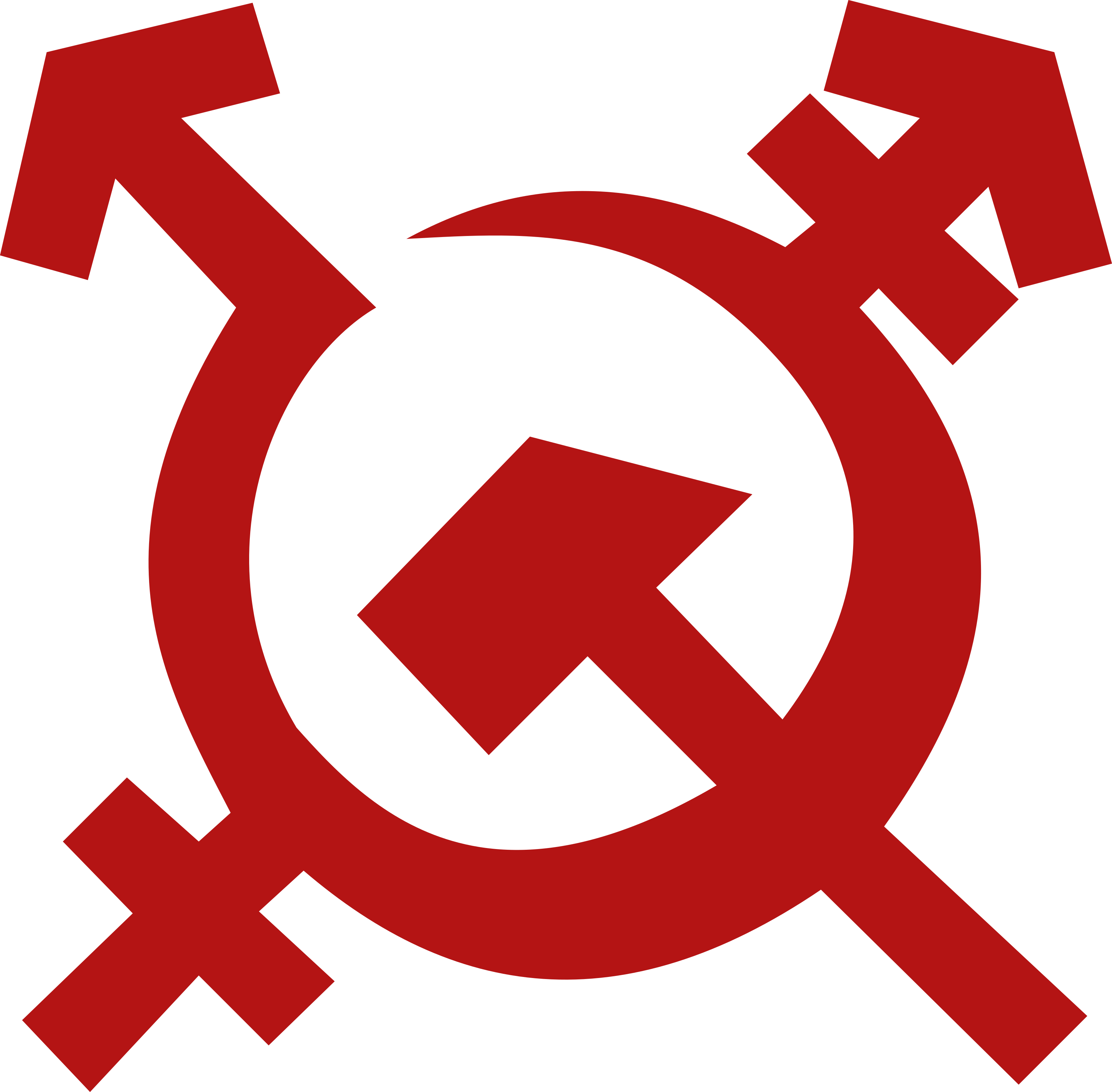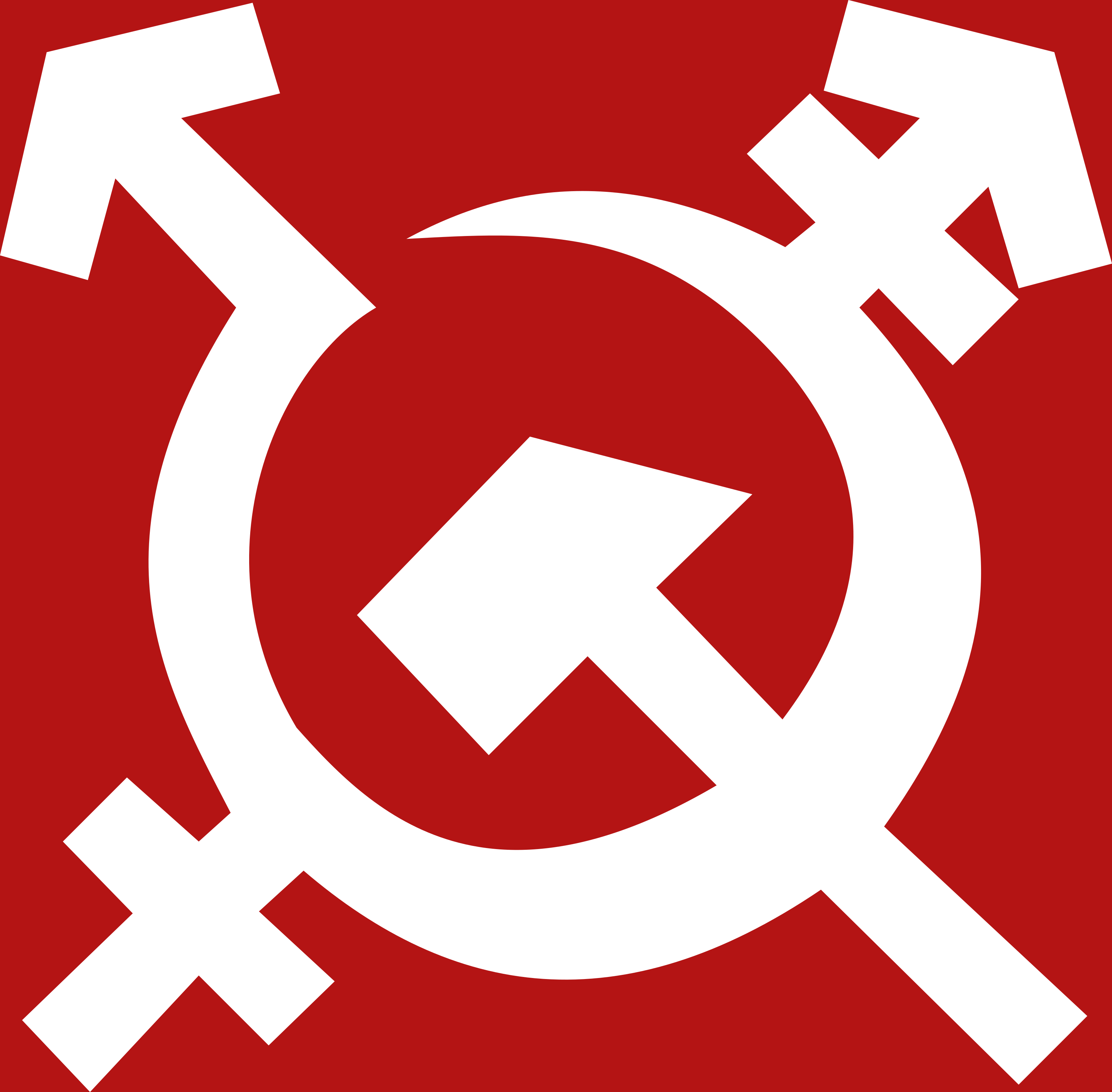ComradeToph (talk | contribs) (Added some more detail.) Tag: Visual edit |
ComradeToph (talk | contribs) (Added a bit more detail.) Tag: Visual edit |
||
| Line 23: | Line 23: | ||
*'''et al. (+):''' encompasses all other identities in the LGBT+ community, mostly alternative gender identities such as '''non-binary, agender, genderqueer,''' etc. | *'''et al. (+):''' encompasses all other identities in the LGBT+ community, mostly alternative gender identities such as '''non-binary, agender, genderqueer,''' etc. | ||
How one identifies themselves in the LGBT+ community can change drastically over time, and many identifies often intersect with each other. Simply put, gender and sexuality are incredibly fluid, and hardly the rigid concepts that society generally makes them out to be. | How one identifies themselves in the LGBT+ community can change drastically over time, and many identifies often intersect with each other. For example, non-gender-conforming people usually also identify as transgender, or even gay/bi depending on their identity. Simply put, gender and sexuality are incredibly fluid, and hardly the rigid concepts that society generally makes them out to be. | ||
== LGBT+ by country == | == LGBT+ by country == | ||
Revision as of 16:50, 1 December 2020


LGBT+, also known by a varying number of letters (see below), is an initialism used to denote the various different types of people that belong to the queer community; that is, people who either do not identify as heterosexual, cisgender, or neither. This community encompasses a wide range of different sexualities, genders and identities, and many people in the community either take on multiple identities or have their identities change over time. The "LGBT" term originally only referred to those who were either gay, bisexual or transgender, but today the term is much broader, hence the "+" added to it. LGBT+ people tend to be stigmatized, discriminated, and materially oppressed due to their sexual and gender identity and expressions, as a result of centuries-old - usually Western - conceptions of such people being predatory, deviant, unnatural, parasitic, mentally ill, "sinful", etc., despite the overwhelming scientific evidence that none of these things are inherent to them. As such, LGBT+ people are often revolutionary and stand in opposition to the status quo. The main symbol that identify this community is the rainbow flag[1], although there are many different flags used to represent the different types of people within it. Inside some communist circles some other symbols can be used to represent the community, like the proposed symbol representing cisgender and transgender in the classical hammer and sickle.
However, even though LGBT+ people suffer bigoted oppression by the bourgeoisie just as any minority group does, there is still a tendency to discriminate against/exclude them even amongst some communists. Some communists - particularly those in more socially conservative countries - may view LGBT+ identities in the traditionally bigoted ways, as well as the idea that LGBT+ behaviour is "bourgeois degeneracy" imposed on the proletariat. This idea comes from the misguided belief that LGBT+ people are somehow put at an advantage above cisgender-heterosexual people, and that therefore they are part of the privileged class. In reality, most bourgeoisie attempts to "normalise" the LGBT+ community boil down to pinkwashing, and are not genuine efforts to make society at large more accepting of these people.
Acronym
Each term in the acronym refers to a specific group and the surrounding community. The acronym was originally created in the mid-1980s as simply "LGB", though by 1988 the term had evolved to "LGBT". Nowadays, the acronym is technically much longer, so much so that "alphabet soup" has become a tongue-in-cheek nickname for it. However, most people simply say it as "LGBT", "LGBTQ", or "LGBTQ+", for the sake of brevity.
The unofficial full acronym is 2S/LGBTQQIAAP+
- Two-spirit: refers to LGBT+ indigenous people; usually those who are transgender.
- Lesbian: refers to women with a homosexual sexual orientation, i.e., exclusive to other women.
- Gay: generally refers to homosexual men, although "gay" is also often used to denote both homosexual men and women.
- Bisexual: refers to people who are attracted to both men and women.
- Transgender: refers to those who, although their body is female or male, their ideas, feelings and desires do not correspond to their biological sex.
- Queer: catch-all term for anyone does not identify as heterosexual and/or cisgender.
- Questioning: someone currently in the process of questioning their sexuality or gender identity.
- Intersex: someone born with both male and female reproductive organs; a condition that is extremely rare but generally has no adverse health affects.
- Allies: heterosexual-cisgender people who support the community.
- Asexual: someone who does not experience sexual attraction to anyone. They may however still experience romantic attraction; if they don't, they are referred to as aromantic.
- Pansexual: someone who is attracted to anyone, regardless of their sexuality or gender identity. Different from bisexuality, because while bisexual people tend to have certain genders they prefer over others, pansexuals do not have such preferences.
- et al. (+): encompasses all other identities in the LGBT+ community, mostly alternative gender identities such as non-binary, agender, genderqueer, etc.
How one identifies themselves in the LGBT+ community can change drastically over time, and many identifies often intersect with each other. For example, non-gender-conforming people usually also identify as transgender, or even gay/bi depending on their identity. Simply put, gender and sexuality are incredibly fluid, and hardly the rigid concepts that society generally makes them out to be.
LGBT+ by country
China
Although Taiwan being the first asian region to legalise the modern form of same-sex marriage, such unions have been recognised across the continent in various guises for centuries. Southern China, in particular, was known for a widespread acceptance of homosexual relationships. Shen Defu, a Chinese writer during the Ming dynasty, wrote that it was common for men of all social classes in Fujian province to take male lovers. These forms of gay “marriage” were prevalent enough in Fujian that there was even a patron deity of homosexuality, the rabbit. In the early modern period, marriages between two people of the same assigned sex but who identified as different genders, were fairly normal in many parts of Southeast Asia, we know this primarily from the records Europeans kept when they landed on Asian shores.
When Europeans first encountered Chinese society, they were shocked and repulsed about one aspect of Chinese society: the “abominable vice of sodomy”. Later the acceptence of gender and sexual diversity began to be eroded through the introduction of world religions (particularly Christianity), modernity, and colonialism. After the Chinese were defeated by Western and Japanese imperialists, many Chinese "progressives" in the early 20th century sought to modernise China, which meant adopting “modern” Western ideas of dress, relationships, science and sexuality. It also meant importing European scientific understandings of homosexuality as an inverted or perverted pathology. These “scientific ideas” were debunked in the 1960s in the West, but lived on in China, frozen in time, and have only recently begun to thaw with the rise of LGBT+ activists in Asia.[2]
Soviet Union
Homosexual activity was originally decriminalised in the USSR in 1917 as part of the repeal of the Tsarist Penal Code.
Critics of the Soviet Union often lambaste Stalin for having recriminalised sodomy in 1933. Although same-sex sexual activity between men was recriminalised throughout the entire Soviet Union in 1933, several Soviet Republics implemented their own sodomy laws throughout the 1920s, such as Azerbaijan and the Central Asian republics. Acceptance of homosexuality throughout the Soviet Republics was rare, especially in regions dominated by the Russian Orthodox Church or influenced by Islam. Religion played a role in the wording of the law, confusing male homosexuality with pederasty.
Georgy Chicherin served as the first People's Commissar for Foreign Affairs of the Soviet Union. Chicherin went to Weimar Germany to seek treatment for his homosexuality. In spite of this revelation, Stalin was a great admirer of Chicherin, and Chicherin continued to serve in his post until 1930 when he was replaced as he had become too ill, suffering from terminal illness. Chicherin died in 1936, having never been subject to punishment despite being openly gay.
Same-sex sexual activity amongst men remained illegal in the Soviet Union up to its dissolution. In some former republics homosexual activity remains illegal to this day. Although countries of the Warsaw Pact were under Soviet influence, they had the freedom to decide their laws. The German Democratic Republic, for example, was much more progressive than the Soviet Union (and even the West) in terms of LGBT+ rights.
United Kingdom
The United Kingdom has historically been hostile to same-sex relationships. Before the formation of the United Kingdom, the ecclesiastical courts of its pre-existing sovereign states such as England dealt with matters concerning homosexuality. The first law touching on same-sex relations to be promulgated was the Buggery Act 1533 that made the act of buggery (therein defined as unnatural sex that goes against God's will) punishable by death. This act was superseded by the Offences Against the Person Act 1828; however, the death penalty remained in force until the introduction of the Offences Against the Person Act 1861. James Pratt and John Smith were the last people to be executed for the crime of sodomy in England, as well as the entire United Kingdom.
Sodomy remained illegal until the Sexual Offences Act 1967 was introduced, over 100 years after the previous law that rescinded capital punishment for homosexuality. In spite of this, however, the legacy of British colonialism meant that homosexuality remained illegal in many of the British Empire's territories. Many former territories to this date punish sodomy, and some jurisdictions such as Victoria, Australia retained the death penalty for sodomy as late as 1949. Some of these territories had never punished homosexuality until colonial interference. Prominent people persecuted under the Sexual Offences Act 1967 include socialist Oscar Wilde as well as mathematician and logician Alan Turing, whose eventual suicide rekindled the debate on homosexuality legalisation. As the law targeted sodomy primarily, female same-sex sexual activity was technically legal. As a result, many gay men resorted to other forms of communication, such as Polari, in order to evade persecution.
The Sexual Offences Act 1967 legalised same-sex sexual activity in England only. The legalisation of same-sex sexual activity in other constituent countries occurred later, with Scotland in 1981 and in Occupied Ireland in 1982, making them among some of the last countries to do so in Europe. The Age of Consent remained unequalised and at 21 (in comparison to 16 for heterosexual same-sex activity) until the Sexual Offences Act 2003. The Prime Minister of the United Kingdom, Margaret Thatcher, castigated homosexuality during her tenure. The topic of homosexuality remained taboo even well into the 21st Century.
The United Kingdom legalised civil partnerships in 2005. Same-sex marriage was legalised in England, Wales and Scotland in 2014; however, the far-right DUP in Occupied Ireland was vocally resistant and delayed the implementation of equal marriage until 2020 in Occupied Ireland. Although the population of the United Kingdom is mostly accepting of homosexuality, the government has approved of the overseas territory of Bermuda briefly revoking the same-sex marriage law.
Transphobia remains a major issue in the United Kingdom. TERFs often harass and attempt to prevent funding to charities that seek to help transgender people. The phenomenon is tragically rampant amongst the British Left just as much as the Right, with the Communist Party of Britain (Marxist-Leninist) and the Communist Party of Britain adopting party lines that are incompatible with the well-being of transgender comrades.